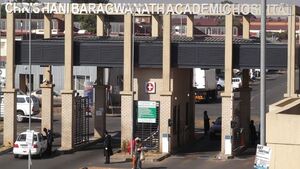This is according to a recent report by the Anton Lubowski Educational Trust (ALET), which offers a sobering glimpse into life inside the country’s classrooms.
The ALET Alert Report describes an education landscape marked by severe overcrowding, under-resourced facilities, and deteriorating infrastructure, especially in township and rural schools. In many cases, teachers are left to cope with classrooms of over 50 learners, while also dealing with safety threats and criminal activity, often without support or adequate pay.
“Some schools are being extorted for so-called protection fees. If they don’t pay, teachers come under threat,” said Nadia Lubowski, Director of ALET, speaking in an interview. “It’s not just about resources anymore. It’s about fear and survival.”
Lubowski explained that such conditions are discouraging young people from entering the profession. Many are opting for more stable or better-paying careers, leading to a critical shortage of skilled educators. "We’re facing a growing gap, not just in teaching staff, but in the quality of education children receive," she said.
One of the most urgent issues highlighted in the report is overcrowding. Teachers are battling to manage large class sizes, leaving little room for personalised attention or effective lesson planning. At the same time, they are burdened with growing administrative responsibilities, further eating into teaching time.
“Teachers are expected to do it all, manage massive classrooms, handle admin, deal with behavioural challenges, all without the proper tools or support,” Lubowski noted.
The consequences for learners are profound. The report warns that students, particularly in poorer communities, are falling behind academically. Many are also dealing with trauma outside school, which often goes unaddressed in the classroom.
“We talk about education as a pathway out of poverty, but right now, it’s barely functioning as that. Instead of being a place of safety and growth, school can be yet another place of stress,” Lubowski said.
She called on civil society to get involved, pointing out the vast inequalities between schools in wealthy areas and those in marginalised communities. “The problems are complex, but not unsolvable. We need to confront them head-on, with collective action and commitment.”
--ChannelAfrica--













